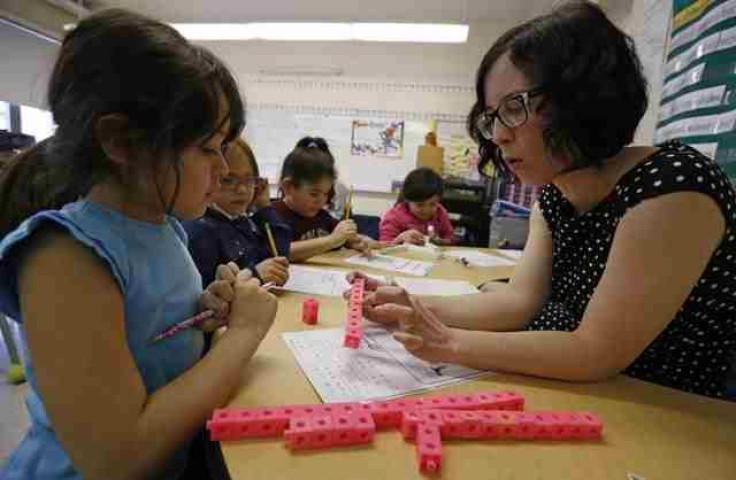An Hour Of Studying Math And Science Is Best For Children, Finds New Study

A new study has found that when it comes to studying math and science, less is more. In the press release by the American Psychological Association, the researchers stated that spending an hour a day on math and science homework is best for students. It maximizes knowledge gain.
The study was conducted by the researchers from the University of Oviedo in Spain. In the release, they stated that contrary to the notion that spending more time on these subjects benefits the student, it is actually less quality time that has most positive effects for a student.
For the study, the researchers looked at 7,725 students from state subsidized and private schools. They were all about 13 to 14 years of age and were from the principality of Asturias in northern Spain. Their performance levels were analysed based on the replies to questionnaires that was given to them. Their hourly time dedicated to homework for each subject, per day, their ability to do homework alone and their academic performance were examined in through the questionnaire. Javier Suarez-Alvarez, PhD, co-lead author with Ruben Fernandez-Alonso, PhD stated that the study found systematic and regular homework promoted “autonomous, self-regulated learning,” and was better than undue amount of work being assigned to the students.
Researchers in the press release state that the study had also taken into account other factors that may affect the performance apart from the basic questions asked, like socioeconomic background, knowledge of the subject and gender. On an average it was seen that students spent one and two hours a day doing homework on all subjects. It was also seen that those who did their own homework and worked on homework assigned to them systematically by the teacher scored higher on the standardized test by 50 points.
They found that on average, students were given 70 minutes of home work per day and sometimes 90 to 100 minutes of work was assigned to them. The students had also shown a downward curve in their progress in math and science. Though 70 to 90 minutes benefitted them a little, Suarez-Alvarez stated that it was way too much work for such little gains. According to Suarez-Alvarez, students who need help in studying and students who study alone score separate percentages while studying for the same amount of time, which is 70 minutes. The former group score in the “50th percentile” and the latter score in the “70th percentile.”
"Once individual effort and autonomous working is considered, the time spent becomes irrelevant," he stated.
The study was published in the American Psychological Association’s Journal of Educational Psychology.
For questions/comments regarding the article, you may email the writer at samrichardson.ibtimes@gmail.com.






